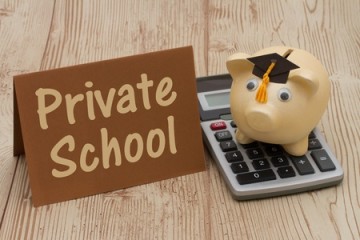Types of Private Schools
Private schools have been around for centuries in the United States. In fact, they were the first systems of education in the country. Before public education made its appearance, all children who could afford it went to private schools. After the introduction of the public school system, parents continued to send their children to private educational facilities. It became what it remains today, a viable option.
The Private School Option
Between 10 and 20% of children attend private schools in the United States. This is an option they are granted under the nation’s laws. Parents feel that private schools address certain issues and concerns that public education does not. In essence, the private educational system is perceived as providing various unique forms of education. No matter what your preference is in terms of religion, philosophy, class size, gender and curriculum content, you are sure to find a private school that matches it.
Categorizing Private Schools
There are various ways of categorizing private schools. These include:
- Source Of Funding: This can be private, from parents, alumni, organizations, etc.
- Philosophy: This is where many private schools vary widely. They may believe education is about learning through traditional methods or through exploring your own curiosity outside the classroom. They may be religious or sectarian.
- Type of Residence: Boarding or non-boarding
- Gender Focus: Single sex or co-ed
- Academic: The impetus here is on academic subjects. The approach, however, can be traditional or innovative
In general, however, these are characteristic that may be used to describe any of the specific types of private schools. Accordingly, many individuals look at this form of education in others terms.
Types of Private Schools
In the United States, one approach to separating or distinguishing the types of private schools is to look at them in terms of their overall approach to education. As a result, you have four basic types of private educational facilities. They are:
- Traditional Private Schools: At his type of private school, the focus is on teaching in a traditional fashion traditional subjects.
- Specialty Schools: These can be defined as being for specific purposes or philosophies. They may focus on a certain type of curriculum or present traditional subjects in a new light. Among them are found such schools as Montessori and Waldorf. Military schools, performing arts schools, working farm schools and those who handle specific children e.g. exceptional, disabled, may be considered as specialty schools.
- Faith-Based, Religious or Parochial Schools: At one time, Roman Catholicism dominated the faith-based private school system. Today, while remaining strong, schools have sprung up to meet the demands of other religions for a faith-based education. While it is not necessary to be Catholic to attend a Catholic school, you will be required to go to religious classes.
- Multi-lingual/International Schools: This type of private school addresses the need for those who either have or want to learn another language. International students may attend such a school in order to receive the education they need, including furthering their instruction in the understanding of English
Once, most private schools were either elitist secular or Catholic in nature. Today, this is no longer the case as private schools work hard to fulfill the ideal of educational pluralism. With so much choice, it is essential you carefully research each school to find the match your child needs to be successful in life.


